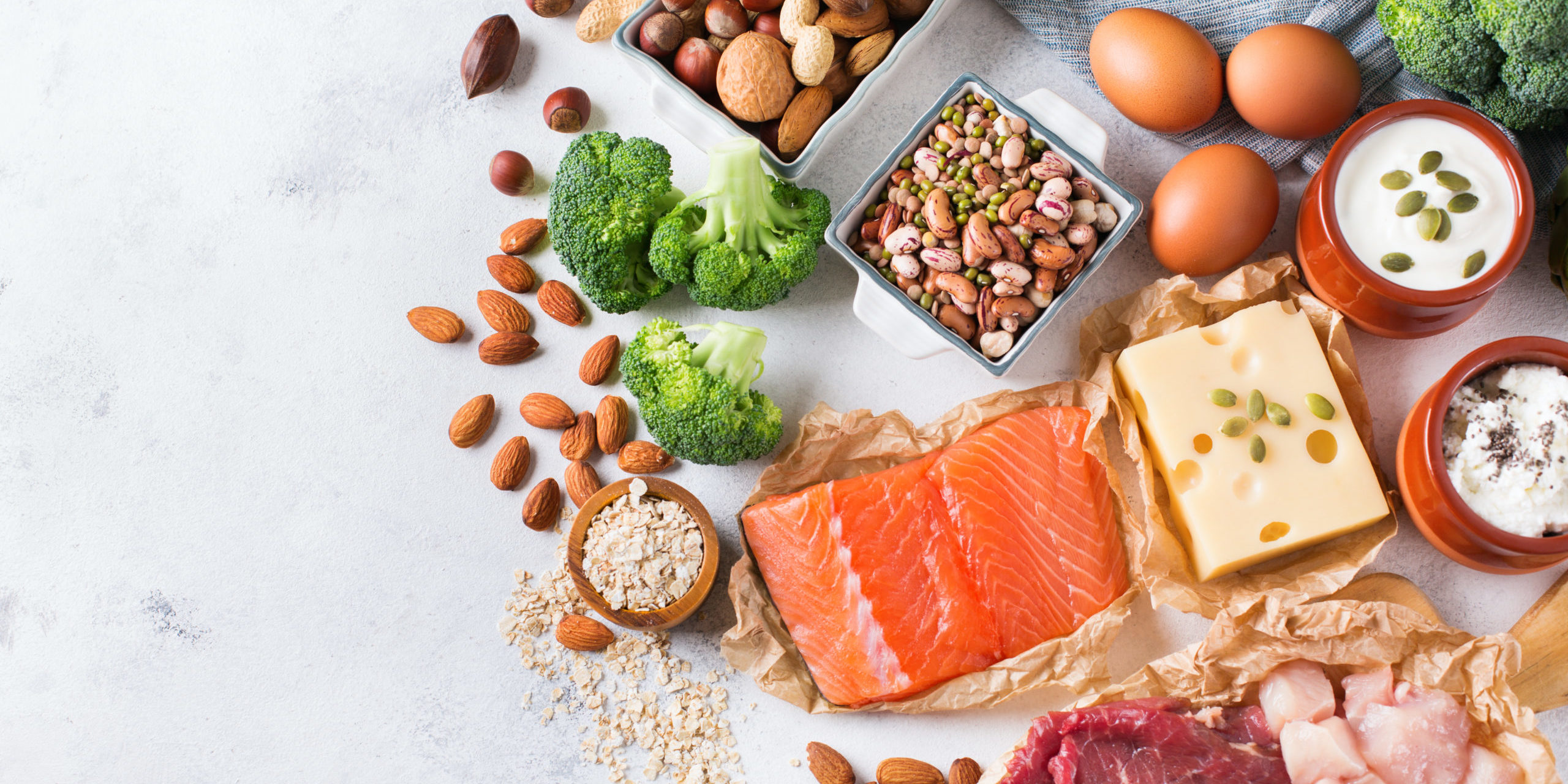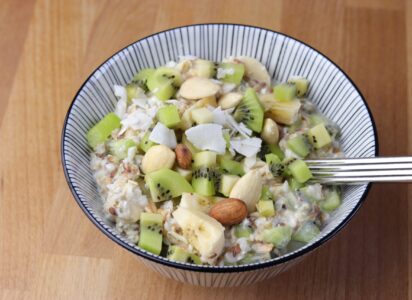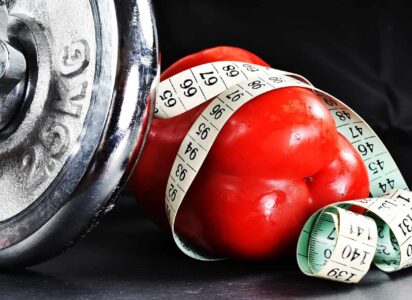Knowing how much protein to consume can be difficult.
The recommended dietary allowance (RDA) is 0.8g per kg of body weight, but this is a guideline for the intake sufficient to meet the nutrient requirements of nearly all healthy people, meaning it is a very general guideline. It has been suggested that this amount is not an appropriate amount for training athletes to meet their daily needs.
How much protein?
How much protein you need can be influenced by a number of factors such as weight, your goal (weight maintenance, muscle gain, or fat loss) and level of activity.
Active individuals may require in the region of 1.2g – 2.0g per kg of body weight. For highly active people and professional athletes, this figure can exceed 2.0g per kg of body weight.
However, it is vital to note there is a large body of research into protein requirements, much of it providing conflicting results. Therefore, guidelines should be used as guidelines and not strict rules.
The bottom line, requirements are highly individual, as what works for one person may not for another in similar circumstances.
Complete proteins
Firstly, we’ll start with what protein is, a macronutrient, made up of amino acids, which act as ‘building blocks’ in your body.
There are 20-22 different amino acids commonly found in plant and animal proteins. Nine of these are considered ‘essential’, meaning the human body cannot synthesise them from scratch, and they, therefore, must be obtained from the diet.
Protein sources all contain different amounts and combinations of amino acids. Animal sources of proteins contain all the essential amino acids required by the body.
That’s not to say that vegetarians and vegans cannot obtain the full range of amino acids, they just need to ensure they are combining different sources of plant protein. This typically involves combining a protein source, such as peanut butter, with a carbohydrate source, such as wholewheat bread. Combining pulses and cereals in one portion to provide a ‘complete’ protein.
There are also a number of vegan sources of complete protein, such as quinoa, buckwheat and soybeans, but it is great to vary your food sources where possible anyway so that you are consuming other essential nutrients.
Muscle protein synthesis
Building muscle is a key goal for many people, and the process by which our body does this is called muscle-protein synthesis (sometimes colloquially referred to as MPS). It is a huge topic of interest in the fitness world, and the amount of protein required to hit this goal is often in question.
While the specific amount, of course, varies from person to person, and with age, muscle mass, and so on, evidence shows that there is peak muscle protein synthesis response with 20-30g of protein per portion. However, there is no identified upper limit of protein, and overall protein consumption throughout the day seems to be the most important factor in building muscle. Furthermore, the minimum recommended amount of protein also increases with age and weight.
Many believe that excess protein will lead to instant fat gain, and while not all protein will be used to synthesise new muscle, excess protein can decrease whole-body protein breakdown, essentially meaning that muscle mass will not decrease with excess protein, and therefore will not be ‘wasted’. However, ensure that you are consuming carbohydrates and fats, too, and not just protein!
Essentially, to build muscle, you need to be consuming enough protein and calories to maintain the muscle mass you already have, and then on top of that, enough to actually synthesise new muscle tissue, which is only possible in a calorie surplus.
If you’d like to find out more about Fresh Fitness Food and how you can save as a member, click here.







Fitness is really vital, so everyone should work out and eat some wholesome plant protein, such as vegan cuisine.